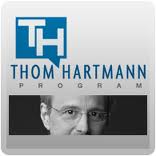 It’s time for universal healthcare in America.
It’s time for universal healthcare in America.
More than 100 economic professors from across our country have signed on to a letter, calling for Vermont Governor Peter Shumlin and that state’s legislature to enact universal healthcare in the Green Mountain State.
Vermont has had plans to implement a universal healthcare system in that state for some time now, but Governor Shumlin put those plans on hold late last year, after concerns came up over how the system would be paid for.
In the letter to Shumlin, the professors argue that healthcare should be provided as a public good, and that financing it actually helps to save money in the long run. The professors write in part that, “Evidence from around the world demonstrates that publicly financed health care systems result in improved health outcomes, lower costs and greater equity. Public financing is not a matter of raising new money, but of distributing existing payments more equitably and efficiently.”
While the professors make a great point, the fact is that Vermont gave universal healthcare a great shot. That state tried hard to make it work, and did its best to bring healthcare to all Vermonters. But Vermont is a very small state with a population of just over 626,000 people. And, in a state that small, implementing universal healthcare is a very hard thing to do.
For universal healthcare to really be successful, it needs to be done at a national level. Fortunately, America already has the framework in place to make universal healthcare a success. That framework is called Medicare.
A lot of people forget this but, back in July of 1965 when Medicare was established by Congress, it was established with the idea that one day it would be slightly changed to become THE national single-payer health insurance program for America. Well, the day to make those changes is now.
Currently, Medicare is made up of four parts: Part A which covers hospital stays, Part B with pays for medical services, Part C which pays for private insurance coverage, and Part D with pays for prescription drugs. Now, it’s time to create “Medicare Part E”, which would cover every single American. Just let any citizen in the U.S. buy into Medicare.
Best of all, creating “Medicare Part E” would be really easy. It wouldn’t be some complicated process that requires Congress and the government to re-invent the wheel.
All Congress would have to do is pass a simple bill that says any American can buy into Medicare at a rate predetermined by the Centers for Medicare and Medicaid Services and the Department of Health and Human Services. In would also be pretty easy to get Americans enrolled in universal healthcare and “Medicare Part E”.
Basically, as soon as legislation is passed approving “Medicare Part E”, the government would begin lowering the eligibility age for Medicare. Each year, the eligibility age would drop by a decade, letting around 30 million new Americans into the program. This process would be repeated each year, and within 7 years, all Americans are covered by Medicare.
Of course, like with any idea, “Medicare Part E” has its opponents. There are people who just won’t want to be part of it. Luckily for them, they would still be able to buy private health insurance, and hand over their hard-earned money to billionaire insurance executives. That’s because universal healthcare doesn’t mean government-only or even government-run healthcare.
In fact, many of the 32 developed countries in the world that have a universal healthcare plan in place continue to have both public and private insurance and medical providers. And, in those countries where universal healthcare is in place, it’s working wonders.
Take Australia for example. In Australia, universal healthcare is guaranteed to all Australians, and the program is working really well. In 2003, Australia’s death rate from conditions that can be medically treated was a whopping 50% less than in America.
The framework for universal healthcare in America is already in place and the resources for it to be successful are readily available. We just have to make it happen. The United States is the ONLY free-market country in the world without a universal healthcare system.
Countries with universal nonprofit healthcare don’t have millions of people struggling to afford healthcare. And they don’t have millions of people skipping out on prescriptions because they cost too much money. From Switzerland to Australia, and Norway to the U.K., healthcare is considered a basic human right. No one questions the notion that everyone, no matter who they are, is entitled to lifesaving and affordable healthcare.
When it comes to improving healthcare in America, Obamacare has been a great start, but it’s just one piece of the puzzle.It’s time to enact “Medicare Part E” and ensure that all Americans have access to lifesaving and affordable healthcare.
Economists Demand Universal Health Care
By Thom Hartmann A...



